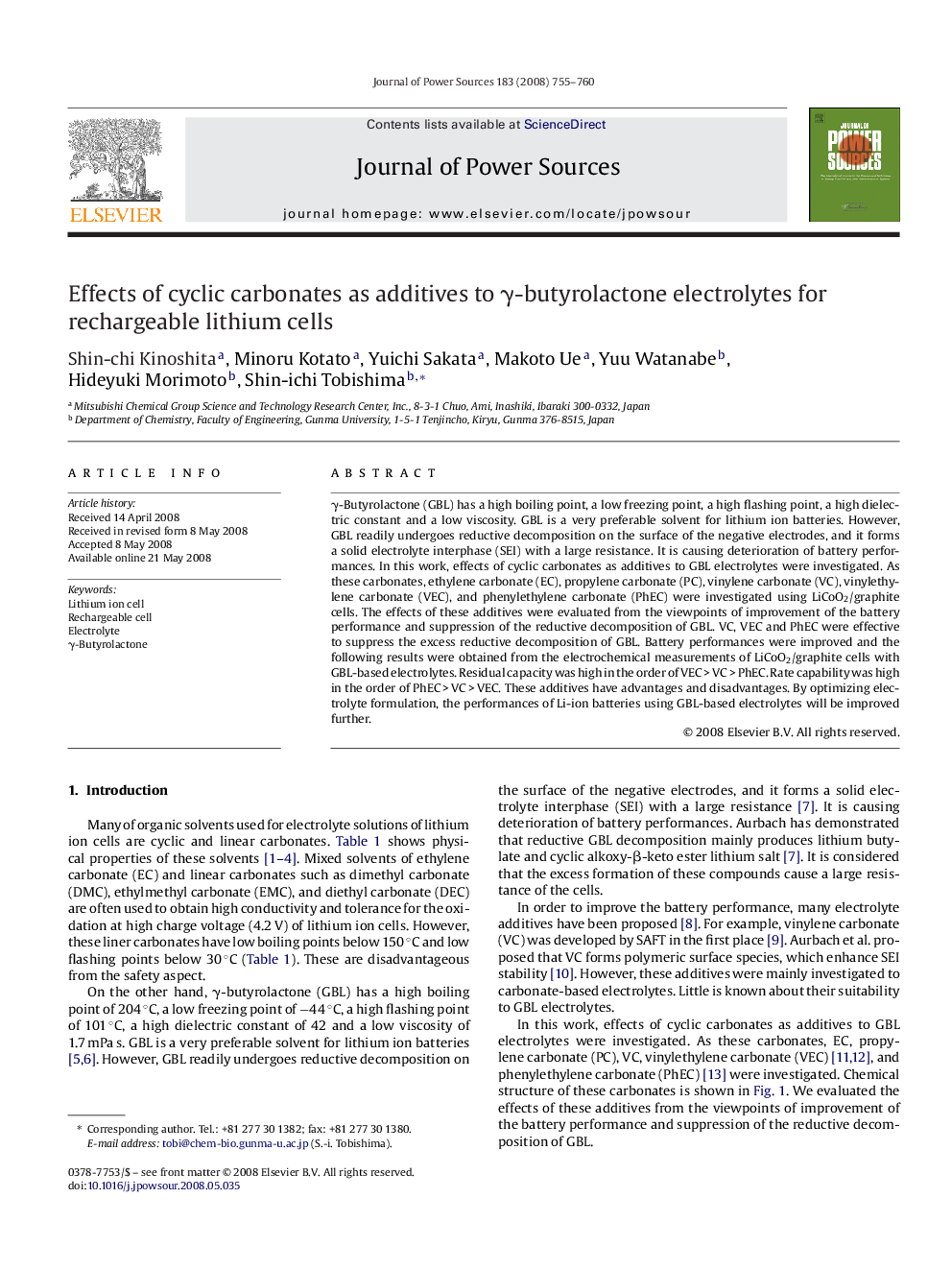| Article ID | Journal | Published Year | Pages | File Type |
|---|---|---|---|---|
| 1290436 | Journal of Power Sources | 2008 | 6 Pages |
γ-Butyrolactone (GBL) has a high boiling point, a low freezing point, a high flashing point, a high dielectric constant and a low viscosity. GBL is a very preferable solvent for lithium ion batteries. However, GBL readily undergoes reductive decomposition on the surface of the negative electrodes, and it forms a solid electrolyte interphase (SEI) with a large resistance. It is causing deterioration of battery performances. In this work, effects of cyclic carbonates as additives to GBL electrolytes were investigated. As these carbonates, ethylene carbonate (EC), propylene carbonate (PC), vinylene carbonate (VC), vinylethylene carbonate (VEC), and phenylethylene carbonate (PhEC) were investigated using LiCoO2/graphite cells. The effects of these additives were evaluated from the viewpoints of improvement of the battery performance and suppression of the reductive decomposition of GBL. VC, VEC and PhEC were effective to suppress the excess reductive decomposition of GBL. Battery performances were improved and the following results were obtained from the electrochemical measurements of LiCoO2/graphite cells with GBL-based electrolytes. Residual capacity was high in the order of VEC > VC > PhEC. Rate capability was high in the order of PhEC > VC > VEC. These additives have advantages and disadvantages. By optimizing electrolyte formulation, the performances of Li-ion batteries using GBL-based electrolytes will be improved further.
